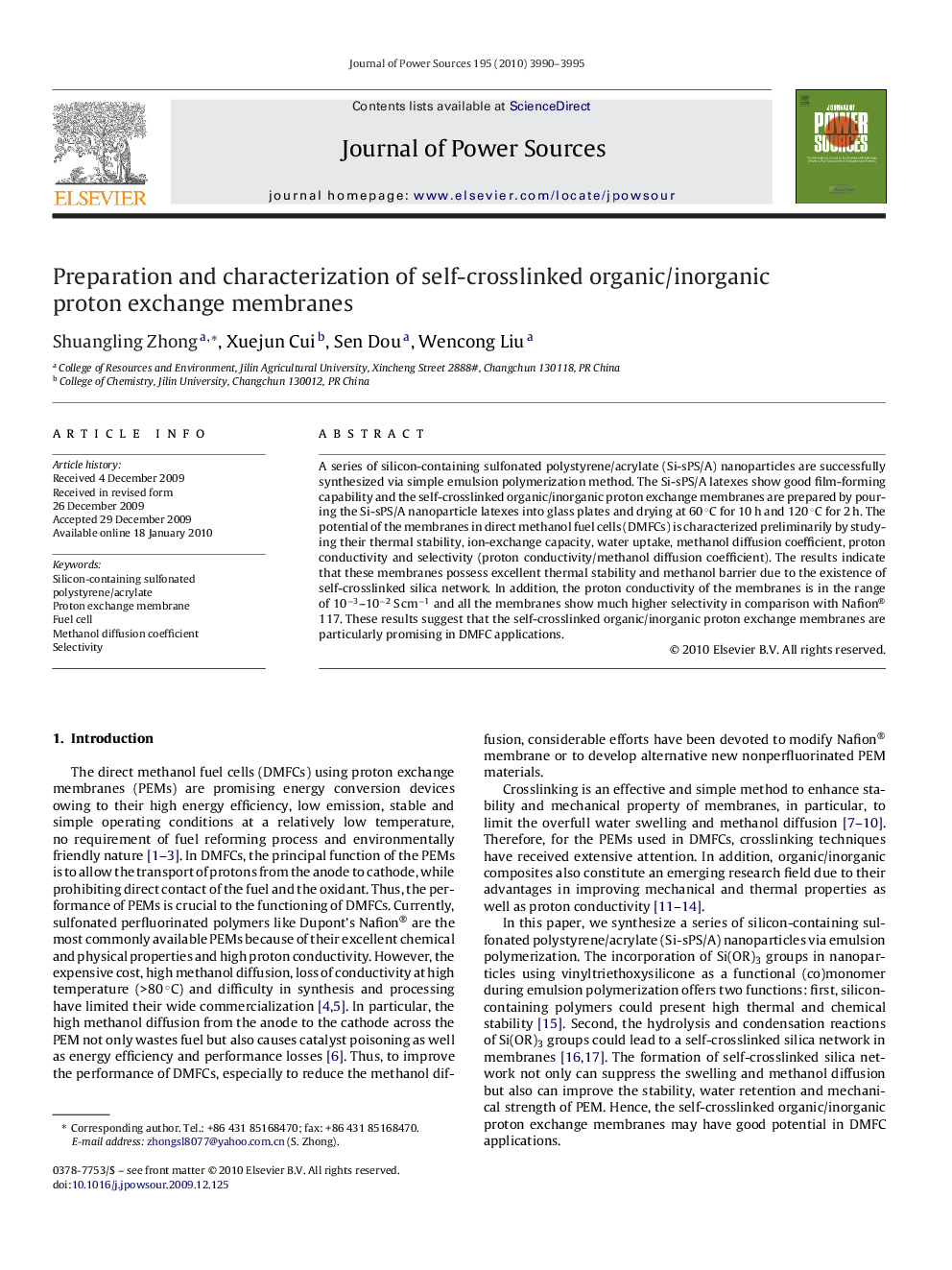| Article ID | Journal | Published Year | Pages | File Type |
|---|---|---|---|---|
| 1290320 | Journal of Power Sources | 2010 | 6 Pages |
A series of silicon-containing sulfonated polystyrene/acrylate (Si-sPS/A) nanoparticles are successfully synthesized via simple emulsion polymerization method. The Si-sPS/A latexes show good film-forming capability and the self-crosslinked organic/inorganic proton exchange membranes are prepared by pouring the Si-sPS/A nanoparticle latexes into glass plates and drying at 60 °C for 10 h and 120 °C for 2 h. The potential of the membranes in direct methanol fuel cells (DMFCs) is characterized preliminarily by studying their thermal stability, ion-exchange capacity, water uptake, methanol diffusion coefficient, proton conductivity and selectivity (proton conductivity/methanol diffusion coefficient). The results indicate that these membranes possess excellent thermal stability and methanol barrier due to the existence of self-crosslinked silica network. In addition, the proton conductivity of the membranes is in the range of 10−3–10−2 S cm−1 and all the membranes show much higher selectivity in comparison with Nafion® 117. These results suggest that the self-crosslinked organic/inorganic proton exchange membranes are particularly promising in DMFC applications.
